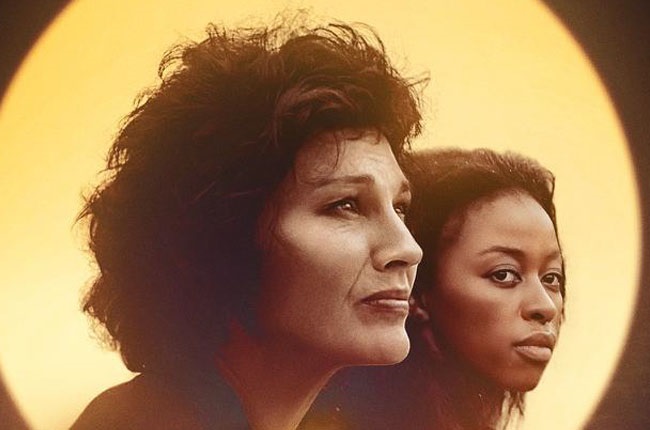
MOVIE:
Jewel
WHERE TO WATCH:
OUR RATING:
2/5 Stars
WHAT IT'S ABOUT:
While visiting a massacre memorial, a photographer finds herself drawn to a local woman. But their romance stirs up painful memories of a shared past.
WHAT WE THOUGHT:
In 1960, 249 South Africans lost their lives to police bullets while protesting the Apartheid's pass laws in Sharpeville. Little accountability was ever taken, and today we commemorate it with Human Rights Day on 21 March every year. But is that enough to make peace with our past?
That's the supposed question being asked in Jewel, Netflix's newest South African film, as it explores the ripple effects of that day in modern Sharpeville. It's wrapped up in a love story between a white photographer, Tyra, who is visiting the memorial and a local Black woman, Siya, who is focused on caring for her ailing grandmother. Their growing affection for each other catches the eye of Siya's jealous boyfriend, still haunted by the scars left by the massacre.
The film, directed and co-written by Adze Ugah, had some bold ideas for Jewel, but unfortunately, the execution left the audience mostly confused about its message, losing track of its metaphors and almost forgetting about its loose threads. At certain points, the love story feels quite contrived, although through no fault of its actors - veteran Michelle Botes and Nqobile Khumalo - who tried to build some authentic chemistry despite their obvious straightness shining through. The white saviour trope also made an appearance, playing up this weird power gaze that exploits tragedy for tourism, the power imbalance between Tyra and Siya was never fully addressed.
It was hard to pinpoint what the film's take was on history - to forgive and move on or to confront your past - and remained pretty unclear throughout the film. In between, it all was a prophetess with visions of the past and future, but her presence felt tacked on and only added to the confusion, especially when her prophetic daughter (I think) makes an appearance a few times as if she plays some important role but then completely disappears at the end of the film. Jewel clearly had many grand ambitions, but its lack of focus and coherence in its symbolism blocked the audience from connecting to any of it.
Despite its beautiful and deliberate aerial footage, the film was also plagued by some bad camera and editing choices. This style, unfortunately didn't pull through to the whole film, with some badly placed camera shakes right in the first few minutes of the film. The editing also felt chaotic and disconnected from the pace, amplified by certain music choices that don't quite match the tone of the various scenes. It feels like the film was plagued by an insanely tight shoot and post-production schedule, giving everything a rushed feeling. I've seen some amazing South African productions borne from tight schedules and small budgets, and the trick is very zealous planning and focus; and Jewel could have used some of that foresight not only in production but in the story as well.
The Sharpeville Massacre also didn't quite get the focus it deserved, pretending that it's the forefront of the story when it eventually just becomes background noise and justification for more violence. All we got was a few shots of the real-life memorial and a nameless man running for his life in waking visions. The dreams of a white policeman shooting him amid a sea of smoke gave it a dreamlike substance that felt unreal when in fact, the massacre was very real, and the people who died were more than just numbers. We needed a name to the face, not just another statistic, to personalise this tragedy for the audience and create a deeper connection.
Jewel had good intentions, but the filmmakers fell victim to their own vision, losing the film's voice in the process. A coherent, well-placed and justified message can make any audience forgive shaky production, but here there are no solid straws to grasp for, and it will soon be forgotten in the churn of streaming content.
WATCH THE TRAILER HERE:

